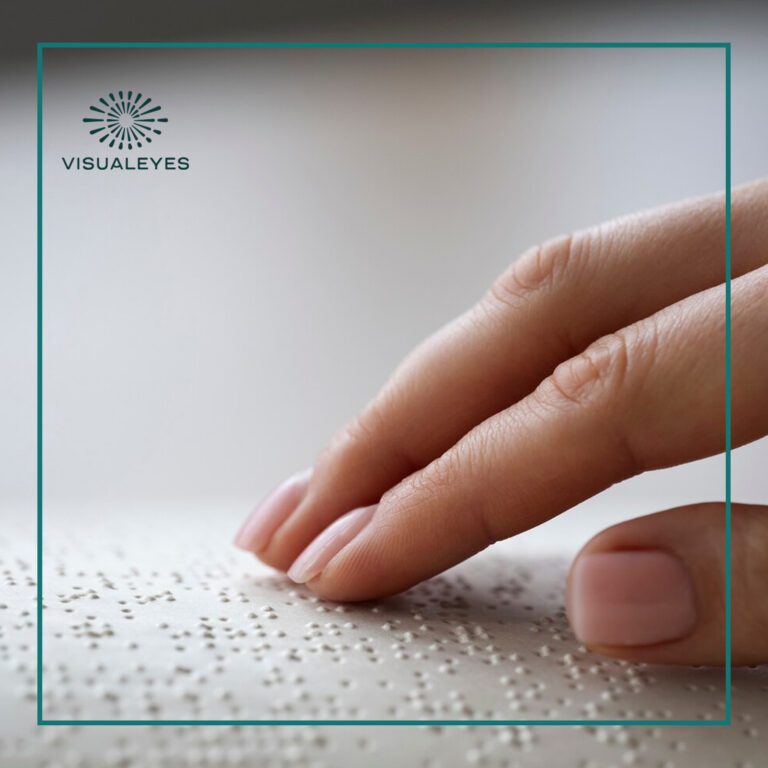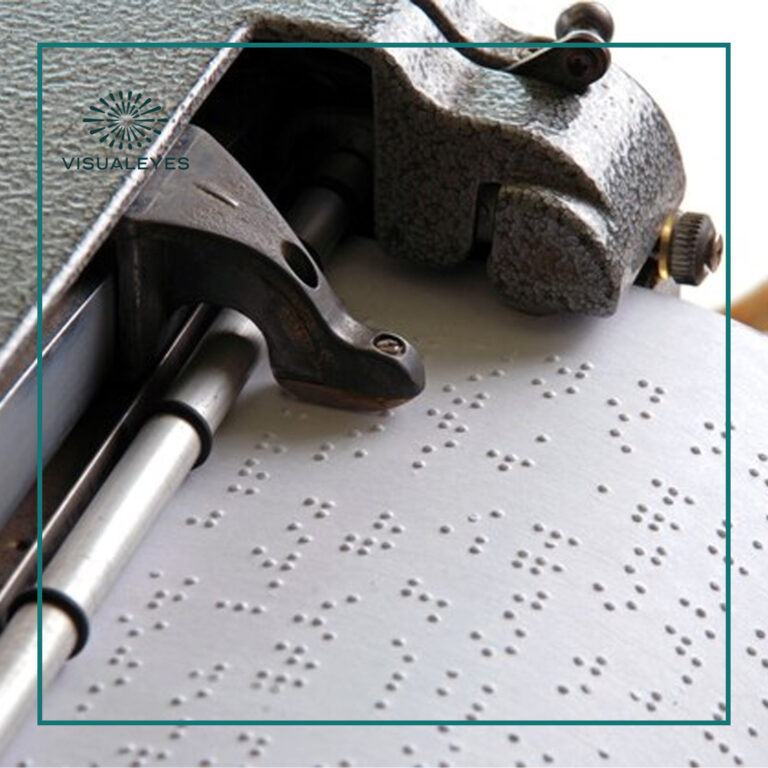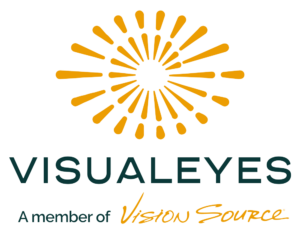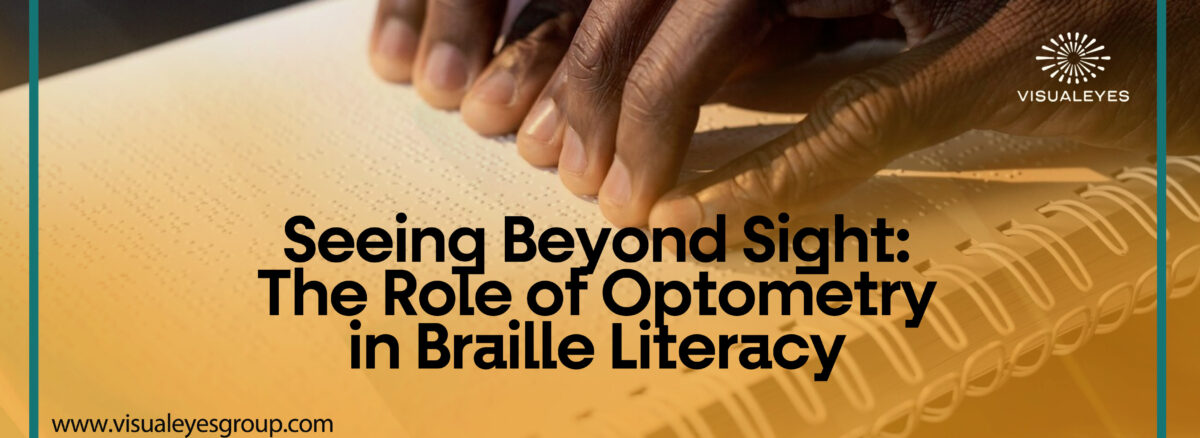- January 10, 2024
- Deborah Jackson
- Comment: 0
- Award Winning, blog, Eye Care Tips for Special Populations, Eye Health and Wellness
Seeing Beyond Sight: The Role of Optometry in Braille Literacy

INTRODUCTION
People assume Braille and Optometry are worlds apart. However, this blog breaks that misconception as we aim to shed light on the intricate connection between them.
Optometrists and Ophthalmologists play a crucial role in the lives of those who rely on Braille for communication. Let’s delve into this important link!
Recognizing Visual Impairment and Braille Literacy
A wide range of conditions fall under the category of visual impairment, and for people who are blind or have low vision, Braille is frequently a necessary tool for reading and writing. By doing thorough eye exams, optometrists, as primary eye care providers, play a crucial role in the early detection of visual impairments. Optical professionals who are knowledgeable about the unique requirements of visually impaired people can suggest suitable interventions, such as Braille learning materials.
Leading the way in vision rehabilitation, optometrists assist patients in adjusting to life with visual impairments. This involves giving people access to materials for learning Braille and offering assistance in the form of technology that helps or low-vision aids. To provide comprehensive vision care with Braille literacy as a core component, optometrists work in conjunction with rehabilitation specialists.
Incorporating Braille Literacy into Eye Care Practices
Patients who are blind or visually impaired can receive eye care more easily by having optometrists incorporate Braille-friendly procedures into their clinics. This may include:
- Braille signs
- Providing Braille educational materials
- Building an environment where people with vision impairments feel encouraged to pursue eye care

CONCLUSION
When it comes to improving vision, optometrists are dedicated to doing more than just fixing refractive errors. It involves recognizing the various needs of people who are blind or visually impaired and actively assisting them in achieving Braille literacy.
We can create a world where everyone, regardless of visual ability, has the opportunity to read, learn, and communicate through the empowering language of Braille. We can do this by encouraging collaboration between optometrists, educators, and rehabilitation specialists.
By doing this, optometrists improve the lives of their patients and help create a vision care system that is more compassionate and inclusive.

